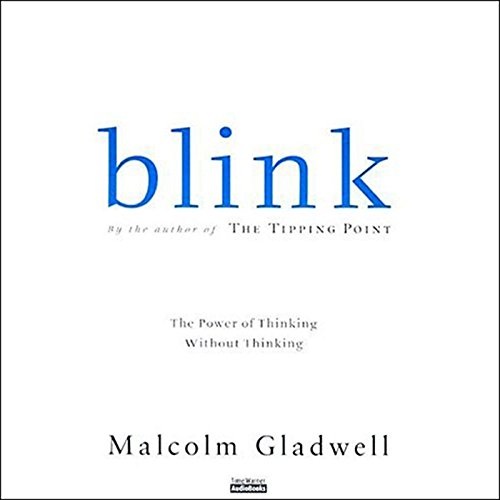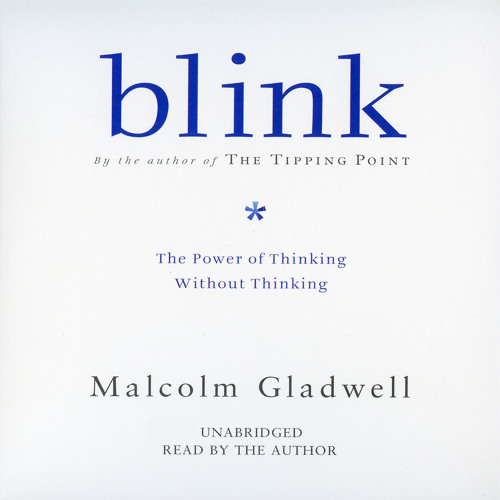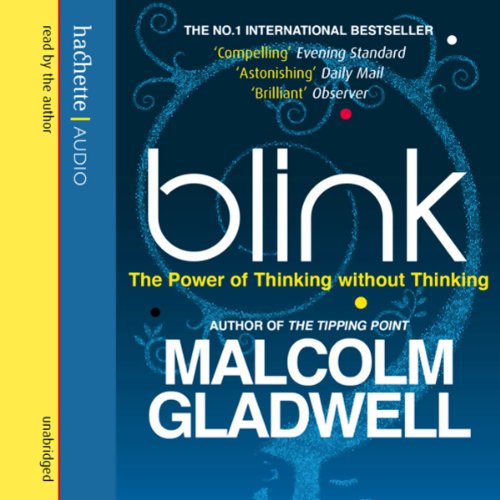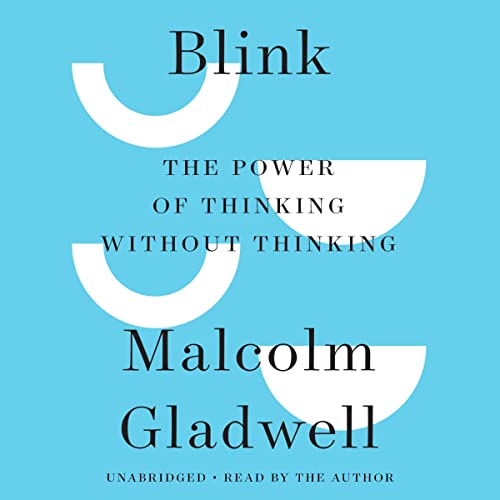Malcolm Gladwell’s “Blink” explores the power of first impressions and snap judgments. It delves into how we can harness this ability effectively.
“Blink: The Power of Thinking Without Thinking” by Malcolm Gladwell investigates the significance of initial reactions. Gladwell argues that our subconscious mind can make quick, accurate decisions in an instant. He provides real-life examples and scientific research to support his claims.
The book reveals how these rapid judgments can be surprisingly accurate, yet also prone to error. Readers gain insight into the inner workings of their own minds and learn the value of trusting intuition. “Blink” is a compelling read for anyone interested in psychology, decision-making, and understanding human behavior.

The Power Of ‘thin-slicing’
Malcolm Gladwell’s Blink explores an intriguing concept called ‘Thin-Slicing’. This term refers to our ability to make quick decisions with minimal information. Often, these snap judgments are surprisingly accurate.
Trusting First Impressions
First impressions play a crucial role in our daily lives. According to Gladwell, we can trust these quick judgments more than we think. Our brains process vast amounts of information in a blink.
Here’s why first impressions matter:
- Speed: First impressions happen in seconds.
- Accuracy: Often, they are spot-on.
- Efficiency: Quick decisions save time.
Rapid Cognition In Decision Making
Rapid cognition is the mental process behind ‘Thin-Slicing’. It allows us to make decisions without overthinking. This skill can be valuable in high-pressure situations.
Consider these benefits of rapid cognition:
- Intuition: Trust your gut feelings.
- Focus: Concentrate on key details.
- Adaptability: Respond quickly to changes.
Gladwell’s Blink audiobook teaches us to harness the power of ‘Thin-Slicing’. By understanding and trusting our first impressions, we can make better decisions swiftly.

When Intuition Leads Astray
In Malcolm Gladwell’s audiobook Blink, he explores the power of quick decisions. Sometimes, these snap judgments can be spot on. But what happens when our intuition leads us astray? Our gut feelings are not always right. Understanding the pitfalls of intuition can help us make better choices.
The Pitfalls Of Snap Judgments
Snap judgments are quick decisions made in seconds. These decisions rely on limited information. While they can be efficient, they often come with risks. Quick decisions can be biased. Our brains use shortcuts, known as heuristics, which can lead to errors.
Studies show that snap judgments can be influenced by stereotypes. For example, people might make assumptions based on someone’s appearance. This can lead to unfair treatment and mistakes. Recognizing these pitfalls can help us slow down and think more critically.
Correcting Misguided Intuitions
Correcting misguided intuitions is key to better decision-making. One way is by gathering more information before deciding. This reduces the risk of errors caused by limited data. Another method is to question our first impressions. Ask yourself, “Why do I feel this way?”
Training ourselves to be aware of biases helps too. For instance, knowing about common biases like the halo effect can make a difference. The halo effect is when one positive trait influences our view of a person. Being mindful of such biases can improve our judgments.
Applying ‘blink’ Principles In Everyday Life
Malcolm Gladwell’s Blink teaches us about the power of quick decisions. The audiobook explores how we can harness our instincts. By using these principles, we can make better choices daily. This section will show you how to apply ‘Blink’ in your personal and professional life.
Enhancing Personal And Professional Decisions
Quick decisions can improve your personal and professional life. Often, your first instinct is right. This is especially true in high-pressure situations. By trusting your gut, you can save time and energy.
Personal Decisions:
- Choosing a new hobby
- Deciding on a vacation spot
- Selecting a book to read
Professional Decisions:
- Hiring the right candidate
- Choosing a project to prioritize
- Making quick business deals
In both areas, fast decisions can lead to success. Trust your instincts and see the benefits.
Learning To Trust Your Gut
Trusting your gut can feel risky. But it often leads to the best outcomes. Your brain processes information quickly. This allows you to make accurate snap judgments.
Steps to Trust Your Gut:
- Stay calm and focused.
- Listen to your inner voice.
- Reflect on past successes.
- Practice making quick decisions.
These steps will help you gain confidence. Trusting your gut becomes easier with practice.
Understanding the principles in Blink can change your life. You can make better decisions by trusting your instincts. Start applying these principles today and see the difference.

Conclusion
Malcolm Gladwell’s “Blink” audiobook offers profound insights into rapid cognition. It’s a must-listen for anyone interested in decision-making. The compelling narration keeps you engaged from start to finish. Dive deep into the power of snap judgments. Enhance your understanding of human intuition with this fascinating audiobook.
Discover the brilliance of “Blink” today.



